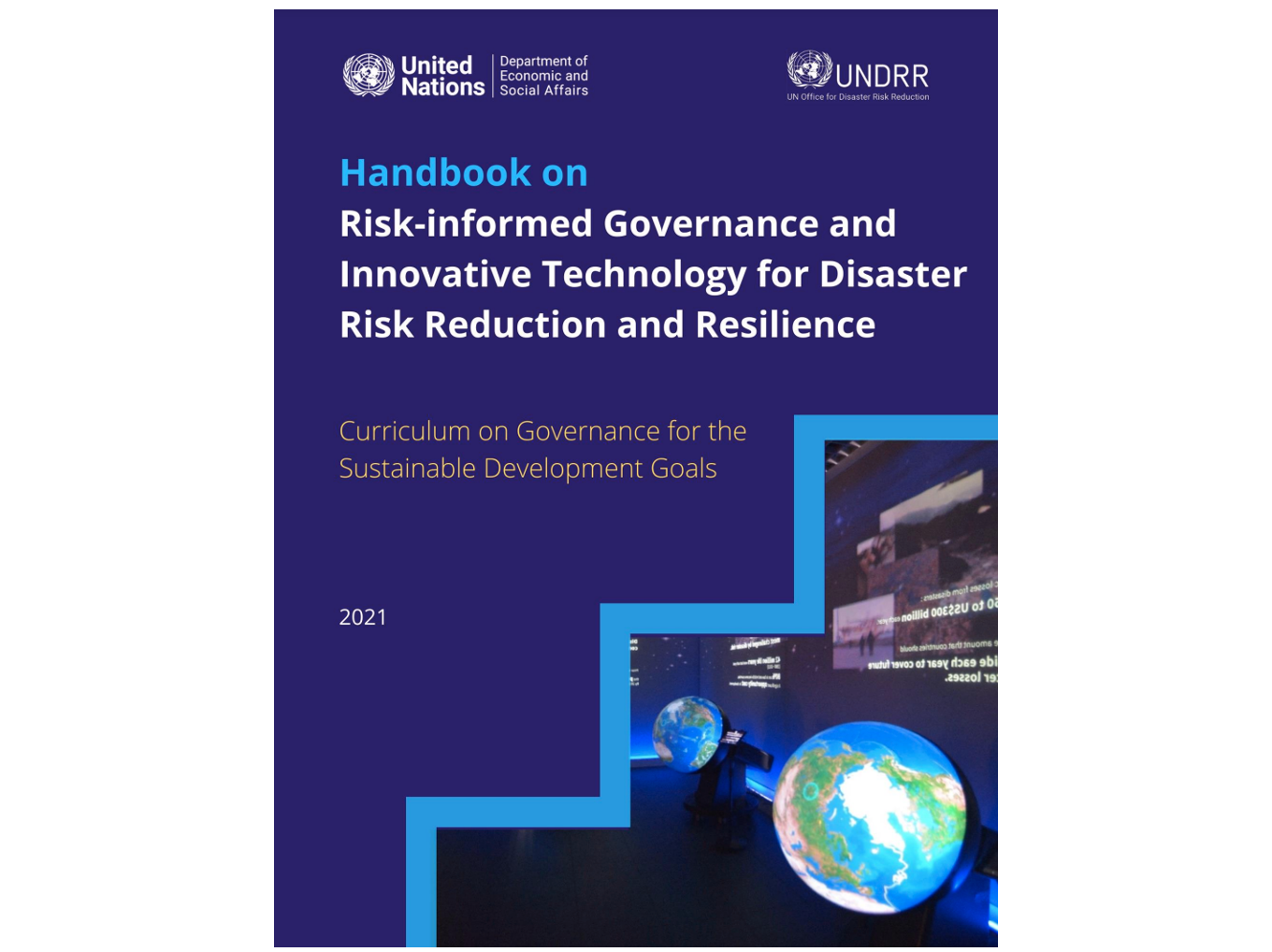Handbook on Risk-informed Governance and Innovative Technology for Disaster Risk Reduction and Resilience

This Handbook is developed based on the Traning of Trainer Toolkit on Risk-informed Governance and Innovative Technology for Disaster Risk Reduction (DRR) and Resilience. The overall learning outcome of this training toolkit is to meet the expectations and respond to the needs expressed in a series of member countries fora and consultations, based on which UN DESA/DPIDG and UNDRR developed this training curriculum and accompanying toolkit. These resources seek to build national capacities to spearhead innovations and utilize Information and Communications Technologies (ICTs) and key frontier technologies in government in order to drive DRR and resilience. Special emphasis is given to public service innovations that serve the needs of vulnerable states, including methods for adapting and scaling them to align with developing country contexts. The materials presented and the activities that align with them explore the mechanisms for access, adoption, uptake, finance, and maintenance of emerging technology in practical formats that seek to advance public sector capacities for risk-informed policymaking and resilience.
By the end of this training, learners will be able to:
-
Understand the need and policy relevance of:
1. promoting risk-informed governance and innovative technology for DRR and resilience
2. closing technology gaps and establishing public governance frameworks for DRR and sustainable development in vulnerable states
-
Assess and analyze the progress, status and challenges faced by member countries in:
3. promoting the adoption of digital government solutions and pursuing public service innovation for resilience
4. expanding the uptake of frontier technologies for DRR and resilience through self-assessment, peer-to-peer leaning; knowledge-sharing, and discussions
-
Identify and apply the various innovative approaches, strategies, and practices for:
5. enabling the means of implementation to leverage innovations in technology through public programs and finance and technology transfer; and
6. measuring progress on resilience for strengthened institutions through frontier technologies, particularly in:
- the application of concepts on how to establish public governance frameworks to close technology gaps for DRR and building resilience in vulnerable states
-being equipped with knowledge of how digital government solutions can be implemented to promote public service innovation for resilience; and
-defining the strategies and roadmap on how to promote government innovation and expand the adoption of frontier technologies for disaster risk reduction and resilience
File added date: 30 September 2021
Author: UN DESA/DPIDG/UNPOG
Download the Publication: English
 Welcome to the United Nations
Welcome to the United Nations